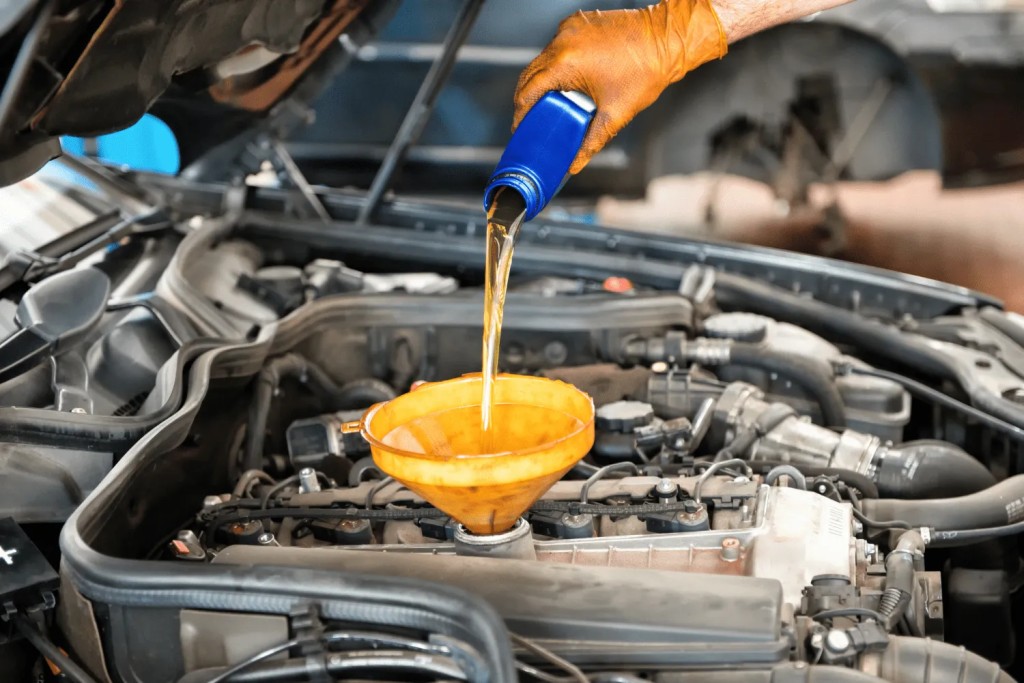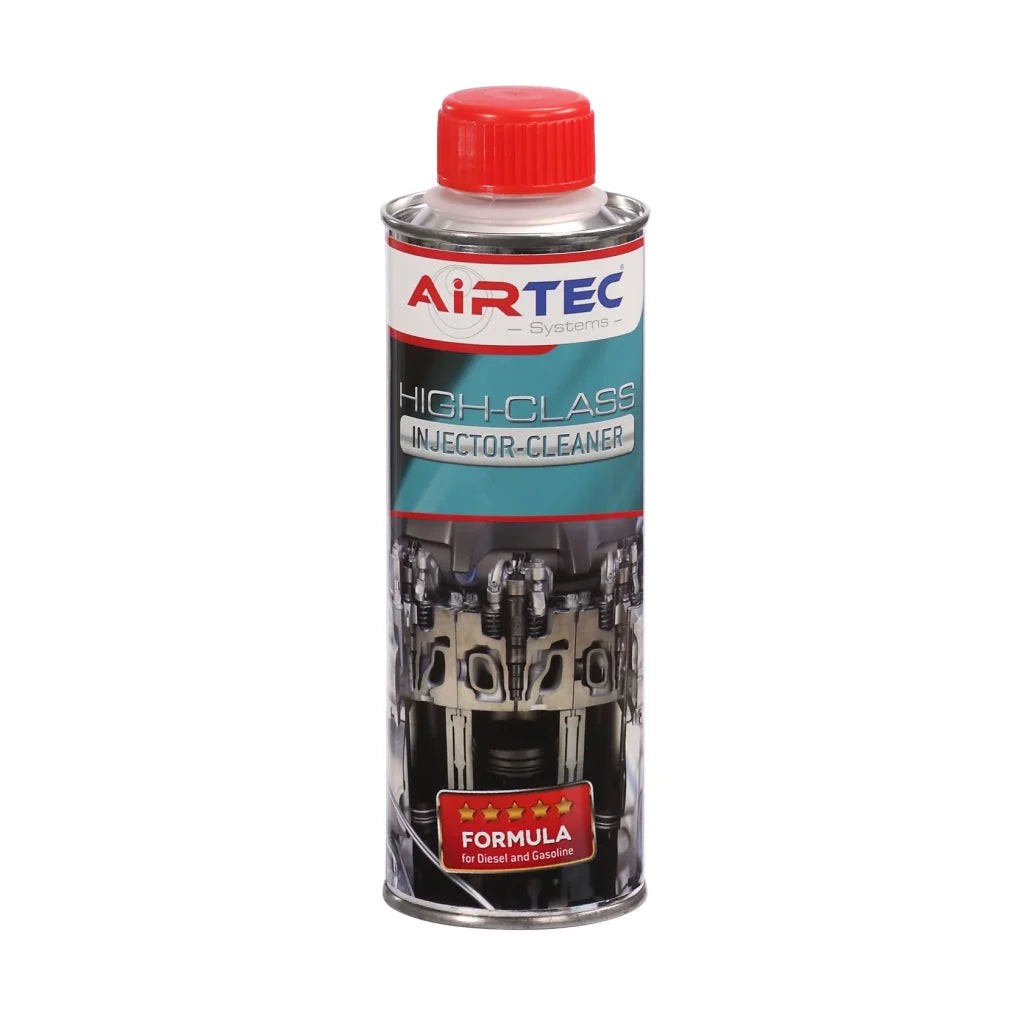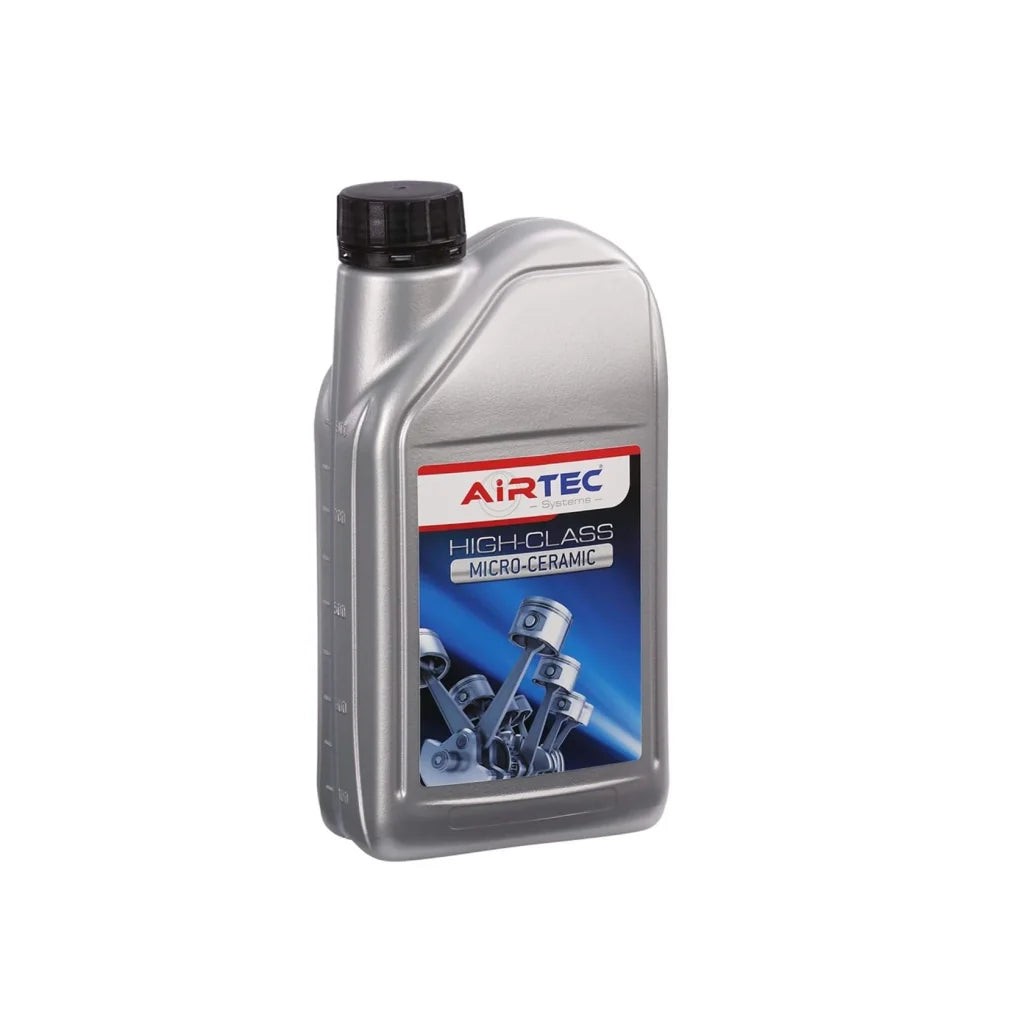How Long Can Oil Last In A Car? It’s a common question, and at CARS.EDU.VN, we’re here to provide a clear answer. Understanding oil life, performing regular fluid checks, and knowing when an oil change is needed are essential for engine care and extending the life of your vehicle. Let’s explore optimal oil lifespan, the importance of regular oil maintenance, and the signs that indicate it’s time for an oil change, ensuring peak engine performance.
1. Understanding Engine Oil Degradation
Engine oil is crucial for keeping your car’s engine running smoothly. Over time, motor oil can degrade, reducing its effectiveness. It’s designed to lubricate, cool, and clean the engine, but its properties change as it ages. This degradation impacts how long oil can last in a car.
1.1. The Role of Oil in Your Engine
Oil’s primary function is to reduce friction between moving parts in the engine. This lubrication prevents wear and tear, helping to extend the engine’s lifespan. Additionally, oil helps dissipate heat and carries away contaminants, keeping the engine clean and efficient.
1.2. Factors Contributing to Oil Degradation
Several factors contribute to oil degradation:
- Heat: High temperatures can cause oil to break down and lose its viscosity.
- Contamination: Dirt, debris, and combustion byproducts can contaminate the oil, reducing its lubricating properties.
- Oxidation: Exposure to oxygen can cause the oil to oxidize, leading to sludge formation and reduced performance.
1.3. Why Infrequently Driven Cars Still Need Oil Changes
Even if your car isn’t driven often, the oil can still degrade over time. Moisture and condensation can accumulate in the engine, leading to corrosion and sludge formation. Additionally, the oil’s additives can break down, reducing its ability to protect the engine. This is why regularly scheduled oil maintenance is crucial regardless of mileage, a fact often highlighted by experts at CARS.EDU.VN.
2. The General Timeline for Oil Changes
So, how long can oil last in a car? The answer varies depending on several factors. Let’s explore some general guidelines and recommendations to help you determine the appropriate oil change intervals for your vehicle.
2.1. Manufacturer Recommendations
Always consult your vehicle’s owner’s manual for the manufacturer’s recommended oil change intervals. These recommendations are based on extensive testing and are tailored to your specific vehicle model. Most manufacturers recommend changing the oil every 5,000 to 7,500 miles or every six months, whichever comes first.
2.2. Conventional vs. Synthetic Oil
The type of oil you use can also impact how long it lasts. Conventional oil typically needs to be changed more frequently than synthetic oil. Synthetic oil is more resistant to degradation and can last longer, often up to 10,000 miles or more.
2.3. Considerations for Infrequent Drivers
If you don’t drive your car often, you might be tempted to skip oil changes. However, as mentioned earlier, oil can still degrade over time, even if the car is sitting idle. In this case, it’s generally recommended to change the oil at least once a year, regardless of mileage.
3. Factors Influencing Oil Lifespan
Several factors can affect how long oil can last in a car. Understanding these factors can help you make informed decisions about your oil change intervals.
3.1. Driving Habits
Aggressive driving, such as frequent acceleration and hard braking, can put extra stress on the engine and cause the oil to degrade more quickly. Stop-and-go traffic and short trips can also be hard on the oil, as the engine doesn’t have enough time to reach its optimal operating temperature.
3.2. Environmental Conditions
Extreme temperatures can impact oil lifespan. In hot weather, oil can thin out and lose its lubricating properties. In cold weather, oil can thicken and become less effective at flowing through the engine. Humidity can also contribute to oil degradation by promoting corrosion and sludge formation.
3.3. Vehicle Age and Condition
Older vehicles or those with mechanical issues may contaminate the oil faster, reducing its lifespan. Leaks, worn seals, and other problems can allow dirt, debris, and moisture to enter the engine, accelerating oil degradation.
3.4. Oil Filter Quality
The quality of your oil filter can also affect how long the oil lasts. A high-quality filter can effectively remove contaminants from the oil, helping to extend its lifespan. Conversely, a low-quality filter may not be as effective at removing contaminants, leading to faster oil degradation.
4. Risks of Neglecting Oil Changes
Neglecting oil changes can have serious consequences for your engine. Understanding these risks can help you appreciate the importance of regular oil maintenance.
4.1. Engine Wear and Tear
Old, degraded oil doesn’t lubricate as effectively, leading to increased friction and wear between engine parts. Over time, this can result in costly repairs or even engine failure.
4.2. Sludge Buildup
As oil degrades, it can form sludge, a thick, sticky substance that can clog engine passages and reduce oil flow. This can lead to overheating, reduced performance, and engine damage.
4.3. Overheating
Oil helps dissipate heat from the engine. When the oil degrades and becomes less effective, the engine can overheat, potentially causing severe damage.
4.4. Reduced Fuel Efficiency
When the engine is not properly lubricated, it has to work harder to overcome friction, resulting in reduced fuel efficiency. This can add up over time, costing you money at the pump.
5. Identifying Signs That Your Oil Needs Changing
Knowing how long can oil last in a car is one thing, but it’s equally important to be able to identify the signs that your oil needs changing. Here are some key indicators to watch out for:
5.1. Dark or Dirty Oil
Clean oil is typically light brown or amber in color. As it gets old and contaminated, it becomes darker and dirtier. Check your oil level regularly using the dipstick. If the oil appears dark or gritty, it’s time for an oil change.
5.2. Unusual Engine Noises
If you hear knocking, grinding, or other unusual noises coming from your engine, it could be a sign that the oil is not providing adequate lubrication. These noises are often caused by increased friction between engine parts.
5.3. Decreased Engine Performance
If you notice a decrease in engine performance, such as reduced acceleration or poor fuel economy, it could be a sign that the oil is degraded and needs to be changed.
5.4. Oil Light or Check Engine Light
The oil light on your dashboard indicates that the oil pressure is low, which could be due to low oil level or degraded oil. The check engine light can also come on for various reasons, including oil-related issues. If either of these lights illuminates, it’s important to have your car inspected by a qualified mechanic.
5.5. Time Since Last Oil Change
Even if you don’t notice any other signs, it’s important to change your oil at the recommended intervals based on time. As mentioned earlier, oil can degrade over time, even if the car is not driven frequently.
6. Choosing the Right Oil for Your Car
Selecting the right oil is crucial for maintaining your engine’s health. Here’s what you need to consider:
6.1. Understanding Oil Viscosity
Viscosity refers to the oil’s thickness and ability to flow at different temperatures. Your vehicle’s owner’s manual will specify the recommended viscosity grade for your engine. Using the wrong viscosity can lead to poor lubrication and engine damage.
6.2. Synthetic vs. Conventional Oil
As mentioned earlier, synthetic oil offers superior protection and can last longer than conventional oil. It’s more resistant to degradation and performs better in extreme temperatures. However, it’s also more expensive. Consider your driving habits, vehicle age, and budget when deciding between synthetic and conventional oil.
6.3. High-Mileage Oil
If you have an older vehicle with high mileage, you might consider using high-mileage oil. These oils are formulated with additives that help to condition seals, reduce leaks, and protect older engines.
6.4. Checking for API Certifications
When choosing oil, look for the American Petroleum Institute (API) certification symbol on the bottle. This indicates that the oil meets certain performance standards and is suitable for use in gasoline engines.
7. The Oil Change Process
Changing your own oil can save you money and help you become more familiar with your car. Here’s a step-by-step guide:
7.1. Gathering Supplies
- New oil filter
- Wrench for removing the old oil filter
- Socket wrench and socket for removing the drain plug
- Drain pan
- Funnel
- Rags or paper towels
- New oil (check your owner’s manual for the correct type and amount)
7.2. Preparing Your Car
- Warm up the engine for a few minutes to help the oil flow more easily.
- Park your car on a level surface and engage the parking brake.
- Use jack stands to safely lift the car, if necessary.
7.3. Draining the Old Oil
- Locate the oil drain plug on the bottom of the oil pan.
- Place the drain pan under the drain plug.
- Use the socket wrench to loosen and remove the drain plug.
- Allow the old oil to drain completely.
7.4. Replacing the Oil Filter
- Locate the oil filter.
- Use the oil filter wrench to loosen and remove the old oil filter.
- Lightly lubricate the rubber gasket on the new oil filter with fresh oil.
- Screw the new oil filter into place by hand until it is snug.
- Tighten the oil filter another half to three-quarters of a turn.
7.5. Replacing the Drain Plug
- Clean the drain plug and install a new crush washer, if necessary.
- Reinstall the drain plug and tighten it to the manufacturer’s recommended torque specification.
7.6. Adding New Oil
- Locate the oil fill cap on the engine.
- Remove the oil fill cap.
- Insert the funnel into the oil fill opening.
- Pour the correct amount of new oil into the engine.
- Replace the oil fill cap.
7.7. Checking the Oil Level
- Wait a few minutes for the oil to settle.
- Remove the dipstick, wipe it clean, and reinsert it.
- Remove the dipstick again and check the oil level.
- Add more oil if necessary to bring the level to the “full” mark.
7.8. Disposing of Used Oil
- Properly dispose of the used oil and filter at a recycling center or auto parts store.
Note: Always consult your vehicle’s owner’s manual for specific instructions and torque specifications. If you are not comfortable performing an oil change yourself, it’s best to have it done by a qualified mechanic.
8. Synthetic Oil vs. Conventional Oil: A Detailed Comparison
Choosing between synthetic and conventional oil can be confusing. Let’s break down the key differences and benefits of each type:
| Feature | Synthetic Oil | Conventional Oil |
|---|---|---|
| Performance | Superior performance in extreme temperatures | Adequate performance in moderate temperatures |
| Lifespan | Longer lifespan, often up to 10,000 miles or more | Shorter lifespan, typically 3,000 to 5,000 miles |
| Engine Protection | Enhanced engine protection and reduced wear | Basic engine protection |
| Cost | More expensive | Less expensive |
| Best For | High-performance vehicles, severe driving conditions | Older vehicles, moderate driving conditions |




9. Maximizing Oil Life: Tips and Best Practices
Want to get the most out of your oil and extend its lifespan? Here are some helpful tips:
- Use High-Quality Oil and Filters: Investing in high-quality oil and filters can help extend oil life and protect your engine.
- Follow the Manufacturer’s Recommendations: Adhering to the manufacturer’s recommended oil change intervals is crucial for maintaining your engine’s health.
- Avoid Aggressive Driving: Gentle driving habits can reduce stress on the engine and help the oil last longer.
- Keep Your Engine Clean: Regular engine maintenance, such as cleaning the air filter and checking for leaks, can help prevent contaminants from entering the oil.
- Monitor Your Oil Level Regularly: Checking your oil level regularly can help you identify leaks or other issues that could lead to premature oil degradation.
10. How CARS.EDU.VN Can Help You Maintain Your Car
At CARS.EDU.VN, we understand the importance of regular car maintenance. That’s why we offer a wealth of information and resources to help you keep your vehicle running smoothly.
10.1. Expert Advice and Guides
Our website features a library of expert articles, guides, and tutorials covering various aspects of car maintenance, including oil changes, fluid checks, and more. Whether you’re a seasoned DIYer or a novice car owner, you’ll find valuable information to help you care for your vehicle.
10.2. Service and Repair Information
Need to find a reliable mechanic or service center? CARS.EDU.VN provides listings and reviews of local auto shops, making it easy to find the right professional for your needs.
10.3. Community Forum
Join our community forum to connect with other car enthusiasts, ask questions, and share your experiences. Our knowledgeable members are always ready to help you troubleshoot problems and offer advice.
10.4. Maintenance Schedules and Reminders
Use our maintenance schedule tool to create a personalized maintenance plan for your car. Set reminders for oil changes, tire rotations, and other important tasks, so you never miss a beat.
FAQ: Addressing Your Oil Change Questions
Here are some frequently asked questions about oil changes:
How Often Should I Check My Oil Level?
It’s a good idea to check your oil level at least once a month, or more frequently if you notice any signs of leaks or other issues.
Can I Mix Different Types of Oil?
While it’s generally not recommended to mix different types of oil, it’s okay to do so in an emergency. However, you should change the oil as soon as possible to ensure optimal engine protection.
Is It Okay to Use Oil Additives?
Some oil additives can provide additional benefits, such as improved engine protection or reduced friction. However, it’s important to choose additives from reputable brands and follow the manufacturer’s instructions carefully.
What Happens If I Overfill the Oil?
Overfilling the oil can put extra pressure on engine seals and gaskets, potentially causing leaks. It can also lead to foaming of the oil, which reduces its lubricating properties.
How Long Can Oil Last in a Stored Car?
Even in a stored car, the oil can degrade over time. It’s generally recommended to change the oil at least once a year, even if the car is not driven.
Should I Change My Oil Before a Long Trip?
If you’re planning a long trip, it’s a good idea to change your oil beforehand to ensure optimal engine performance and protection.
Can I Use Synthetic Oil in an Older Car?
Yes, you can use synthetic oil in an older car, but it’s important to check for leaks beforehand. Synthetic oil can sometimes seep through worn seals and gaskets.
What Does the “W” Mean in Oil Viscosity Grades?
The “W” in oil viscosity grades stands for “Winter.” It indicates the oil’s viscosity at low temperatures.
Is It Okay to Drive with the Oil Light On?
Driving with the oil light on can cause serious engine damage. It’s important to stop driving as soon as possible and have your car inspected by a qualified mechanic.
Where Can I Find the Right Oil Type for My Car?
Your vehicle’s owner’s manual will specify the recommended oil type and viscosity grade for your engine. You can also consult with a qualified mechanic or auto parts store employee.
Conclusion: Prioritizing Regular Oil Maintenance
Understanding how long can oil last in a car and prioritizing regular oil maintenance is essential for extending the life of your engine and ensuring optimal performance. By following the tips and guidelines outlined in this guide, you can keep your car running smoothly for years to come. Remember, CARS.EDU.VN is here to help you every step of the way. Explore our website for more expert advice, service and repair information, and community support.
Ready to take control of your car’s maintenance? Visit CARS.EDU.VN today to learn more and connect with our community of car enthusiasts! For personalized assistance or to find a trusted service provider near you, don’t hesitate to reach out to us at 456 Auto Drive, Anytown, CA 90210, United States, or contact us via Whatsapp at +1 555-123-4567. Drive safe and stay informed with cars.edu.vn!
